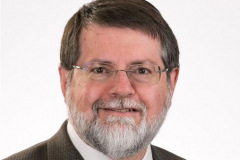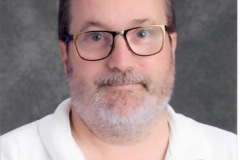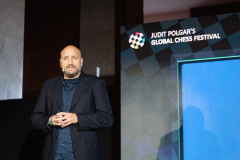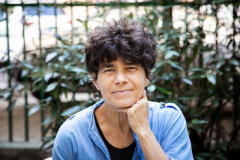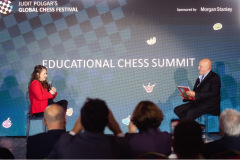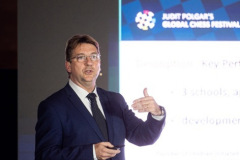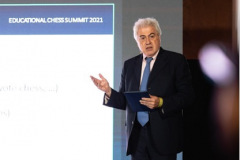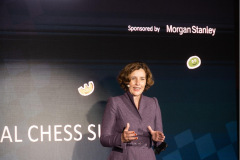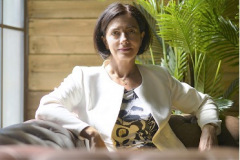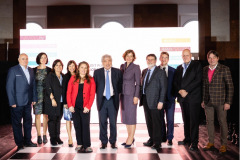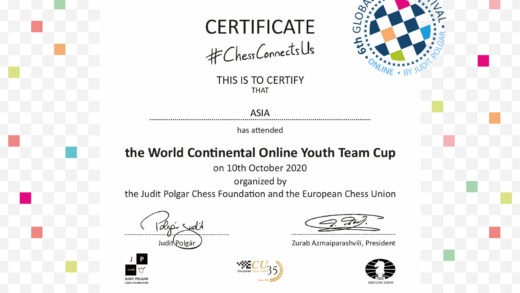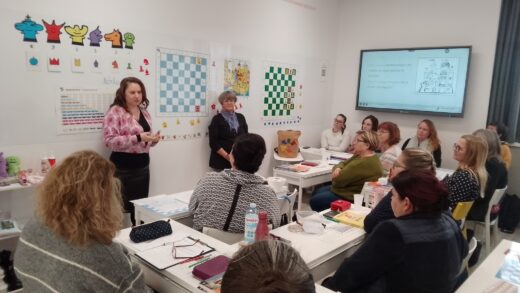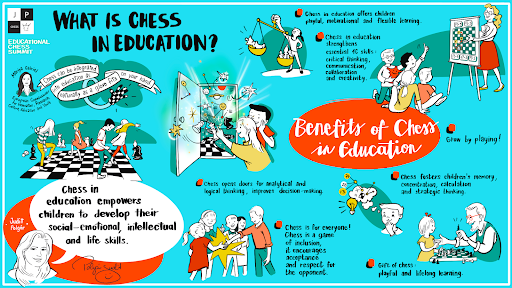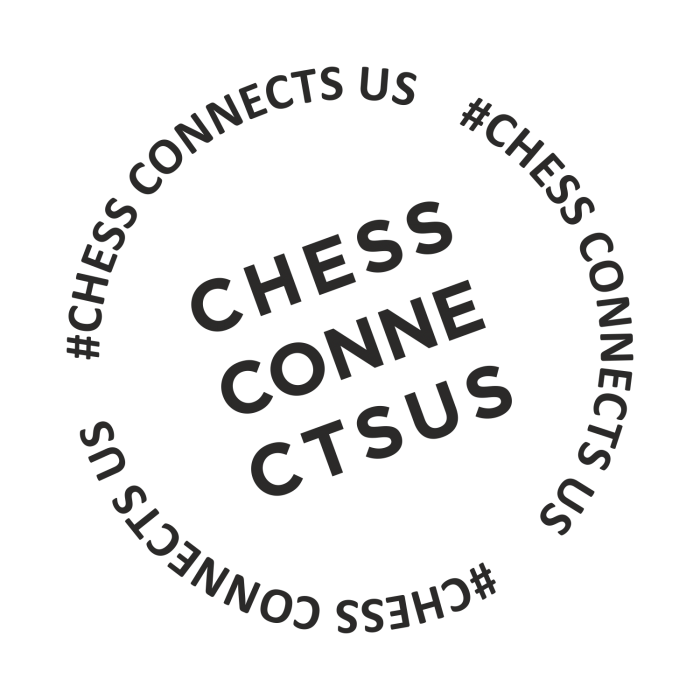This year one of the key programs of the Global Chess Festival was the Educational Chess Summit conference, where presenters emphasized that chess does deserve a place in classrooms as a profound way of skill development.
Lorena Garcia, educational researcher proved to the audience that chess can improve self-esteem and deters anxiety. Rita Atkins, British International Master showed practical examples of incorporating chess in mathematics classes; Jesper Berger, international chess coach, debunked a very widespread theory: chess only develops children with exceptional capabilities; chess can be surprisingly beneficial for children suffering from learning disabilities. Fernando Moreno, Spanish psychologist was a recurring presenter at the Global Chess Festival – this time he discussed the “life lessons” chess can teach us. Eva Gyarmathy, senior researcher at the Institute of Cognitive Neuroscience and Psychology spoke about chess and research, and the need of new generational learning tools for new generational kids. Furthermore, a screening of Judit Polgar’s and Ernő Rubik’s – inventor of Rubik’s Cube – discussion was presented, where a whole new idea of education systems based on creative energies will emerge.
The conference also welcomed Leontxo García, Spanish chess journalist as co-host of the Chess Festival alongside Judit Polgar, but Dana Reizniece-Ozola managing director of FIDE, Bachar Kouatly, president of FIDE and Mariya Gabriel, European Commissioner for Innovation, Research, Culture, Education and Youth will also speak.
More about the speakers:
Judit Polgar (Hungary) – Grandmaster, Olympic Champion, Educational Ambassador
As the youngest of three chess-playing girls, Judit Polgar reached
milestones that are unique to this day. At the age of 12, she became the
number one ‘woman’ in the world rankings, a position she would hold for
26 years. At 15 years and 4 months she became a ‘male’ grandmaster,
breaking the age record of the legendary Bobby Fischer. Following her
retirement in 2014, she focused on the promotion of chess, both as a
sport and as an educational tool with her Judit Polgar Foundation and
the annual Global Chess Festival. She has been bestowed many honorary
titles, including honorary Vice-President of the World Chess Federation,
Honorary Doctor of Physical Education at Budapest University, and
Educational Ambassador of the Play Magnus Group.
Leontxo García (Spain) – Chess journalist, Author
Leontxo García (Spain, 1956) works as a chess journalist (press, radio
and TV) and lecturer since 1983. Councillor of FIDE on educational
chess, he has trained or given lectures to more than 30.000 teachers in
30 countries. He was a guest speaker at the last two editions of ICOT
(the most prominent international congress on innovative education). His
book about chess and science (2013) is in its 7th edition. He has been
awarded with the Medal of Merit by the Spanish Government and included
in FIDE’s Golden Book “in appreciation of his excellent contributions to
develop of chess in the world”. He is also the director of “Aprender
con Ajedrez” (Learning through chess). In FIDE, besides being a
councillor, he is a member of the Strategy Group (for chess in
Education). After surveying all 195 member countries, they have designed
the strategy for the next five years.
Dana Reizniece-Ozola (Latvia) – FIDE Managing Director, Deputy Chair of Management Board
Challenges of the education systems in the ever changing labour market during technology era
She is the current managing director of the International Chess
Federation (FIDE) since 2021. She also served as minister of Economics
(2014–2016) and minister of Finance (2016–2019) of the Republic of
Latvia. Reizniece-Ozola has been elected as a member of the 10th, 11th,
12th and 13th[3] Saeima of the Republic of Latvia and worked as the
chairperson of the Commission on Education, Culture and Science, Member
of the Legal Affairs Commission and Member of the European Affairs
Commission. In chess, Reizniece-Ozola was awarded the title of Woman
Grandmaster by FIDE in 2001.
Jerry Nash (USA) – National Chess Education Consultant
Chess in Education: An Ancient Game Changing the Modern Classroom
As National Chess Education Consultant for the Alabama Chess in Schools
initiative, Jerry Nash believes in the power of chess to enable student
success – both in and out of the classroom. His experience as a trainer
has provided ample evidence that when teachers introduce chess to
students, they create the opportunity for students to develop the skills
they need to be successful. M. Nash has emerged as a leader in the
growing international Chess in Education movement. In 2019, he was
appointed to the FIDE – EDU (World Chess Federation Education
Commission) Workgroup: High Quality Standards for Chess Education. In
2021, he joined both the FIDE-EDU Strategy Group and FIDE-EDU
Certification and Endorsement Group, both tasked with outlining FIDE’s
goals and strategies for Chess in Education over the next four years.
Lorena García (Spain) – Primary school teacher, educational psychologist
Chess and emotional intelligence
Educational psychologist, researcher, school teacher (26 years),
lecturer. Selected speaker at the ICOT (Miami 2018). Speaker, since
2014, for the Kasparov Foundation Latin America. She has given lectures
in Spain, USA, Mexico, Panama, Colombia, Argentina and Costa Rica.
Co-author of the first published study (La Laguna University, Tenerife)
which indicates that chess develops the emotional intelligence as well
(not only the cognitive one). Co-author of “Aprender con Ajedrez”
(Santillana). Director (since 2016) of “Educando personitas, no
campeones” (educating little persons, not champions), a project funded
by the Canary Islands Government to teach the teachers on chess as an
educational tool in the curriculum. Codirector (on behalf of La Laguna
University) of the MATE Project (educational chess), funded by the EU,
in cooperation with universities from Poland, Lithuania and Alicante
(Spain).
Rita Atkins (Hungary) – Mathematics teacher and WIM
“Chess and Mathematics”
She holds a degree in Mathematics and Physics as well as a Diploma of
Education from Eötvös Loránd University in Budapest, and an MSc in
Computing Science from Imperial College, London. She has spent over ten
years as a teacher of mathematics and physics in the UK and in Ireland.
She is a Women International Master of chess. She uses her experience
in competitive chess to coach her students about the mysteries of the
royal game. Rita strongly believes that chess is a great educational
tool. She is the co-author and course leader of the ’Teaching
Mathematics through Chess’ course designed for school teachers and
accredited by the European Chess Union.
Éva Gyarmathy, PhD (Hungary) – Senior Researcher, Institute for
Cognitive Neuroscience and Psychology of the Research Centre for Natural
Sciences, (Hungarian Academy of Sciences)
Chess and Research. New generational kids, new generational learning
Eva Gyarmathy is a senior researcher at the Institute of Cognitive
Neuroscience and Psychology. Her research interest focuses on the
challenges of the 21st century, and with it on talent associated with
specific learning difficulties, ADHD and/or autism spectra. She is a
lecturer at several universities. She is also a consultant to schools
that serve children and adolescents who could not be integrated into
mainstream schools. (Photo: Anna Kerepeczki, WMN)
Fernando Moreno (USA) – Author, lecturer, and professional school counselor
Developing Social Emotional Skills – Using Chess as a Metaphor for Life
Fernando Moreno is a psychologist, who was trained in Spain and has a
Master’s degree in School Counseling from the Trinity University of
Washington DC. For more than thirty years he has provided multicultural
counseling skills to support students in their journey for academic
success through the development of thinking and social emotional skills.
He has lectured at international conferences, published books and
regularly writes newspaper columns and articles in professional
journals. In 1986 he emigrated to the United States. In 1991 he began to
develop the idea of using chess as a tool for psychological work with
children. He completed his innovative idea of chess as a metaphor of
life in 1996 and created a program called: Chess for Success in the
public schools of Montgomery County in Maryland. In 2002 his work
culminated in the publication of his book Teaching Life Skills through
Chess, A guide for Educators and Counselors, that received favourable
reviews and has sold three editions.
Jesper Hall (Sweden) – International Chess Master, FIDE Senior Trainer
Chess – a way to support kids struggling with thinking!
Following his career as a chess player, he switched his focus to chess
training and education in Sweden. He has written 16 books on how to
learn and teach chess and from 2010 to 2020 he was the national trainer
of the Swedish Chess Federation. This summer he was appointed chief
trainer of the Uppsala Chess Club, where he is responsible for top chess
and their chess in schools project. As from 2014, Jesper Hall has been
the Chairman of the Education Commission of the European Chess Union
(ECU). Currently he is also in charge of chess talent development in
Norway.
Bachar Kouatly (France) – FIDE deputy president
Bachar Kouatly was the first French chess player to become a Grandmaster
in 1989. He holds a Master’s degree in political science and energy
economics, and is former president of the French Chess Federation. He is
a FIDE deputy president and the creator of the Vote Chess program for
Orsay.
David Ros (France) – Mayor of Orsay
David Ros is a Doctor in Physics (Paris-Saclay) and a Professor of the
University of Orsay. He has been the Mayor of the city of Orsay since
2008 and vice-president of the urban area of Paris-Saclay in charge of
research and innovation.
Orsay – Chess education pilot through Vote Chess

